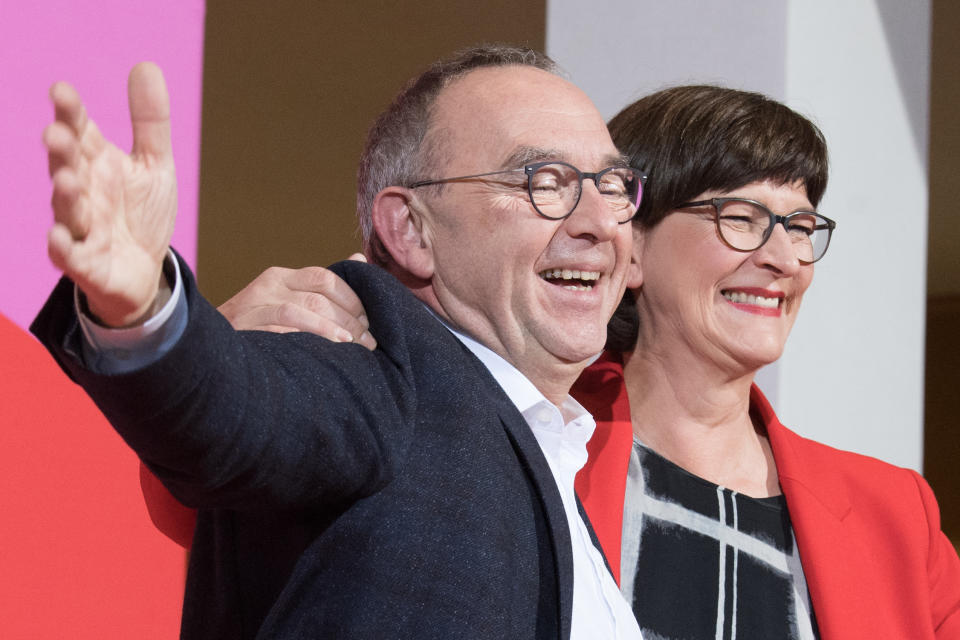Merkel government under threat after SPD leadership change

The German government in Berlin is on tenterhooks this week after the Social Democratic Party (SPD) took a leap to the left on Saturday, electing a new leadership duo openly critical of their party’s coalition with chancellor Angela Merkel’s Christian Democratic Union (CDU).
Norbert Walter-Borjans and Saskia Esken won the SPD leadership vote, beating German finance minister Olaf Scholz and his running mate Klara Geywitz.
Unlike Scholz, who is Merkel’s vice-chancellor and committed to Germany’s long-held “black zero” balanced budget, the new leaders from the left wing of the party have demanded that government loosen the purse strings to invest more into welfare and infrastructure, increase the minimum wage, and boost climate-protection measures.
READ MORE: Germany unveils €54bn climate plan as thousands in Berlin join global strike
Christian Democrats, whose embattled leader Annegret Kramp-Karrenbauer recently threatened to quit if the party refused to get behind her, have insisted that the new SPD leaders respect the coalition treaty they reluctantly struck with the Conservatives after the last election.
Many SPD members have blamed their role as junior partners to the Conservatives as a reason why they have been bleeding voters in recent years. However, both the CDU and SPD have taken a battering by the far-right Alternative for Germany (AfD) and the Greens in regional elections, as voters abandon centrist parties. The AfD has taken second place in three eastern German state elections this year.
READ MORE: Germany's far-right surges to second place in another state election
"A renegotiation of the coalition agreement is not on the cards," Merkel’s spokesman Steffen Seibert told journalists on Monday in Berlin.
The situation will remain tense until the SPD’s party conference on 6 December, when they are expected to vote or at least lay out conditions for remaining in the loveless coalition in Berlin. Depending on their demands, Merkel could be facing either ruling in a minority government until her term ends at the 2021 general election, or Germany may have to hold snap elections before then.
Either way, Europe’s biggest economy, which is about to take over the EU presidency in 2020, may now undergo months of political uncertainty.

 Yahoo Finance
Yahoo Finance 